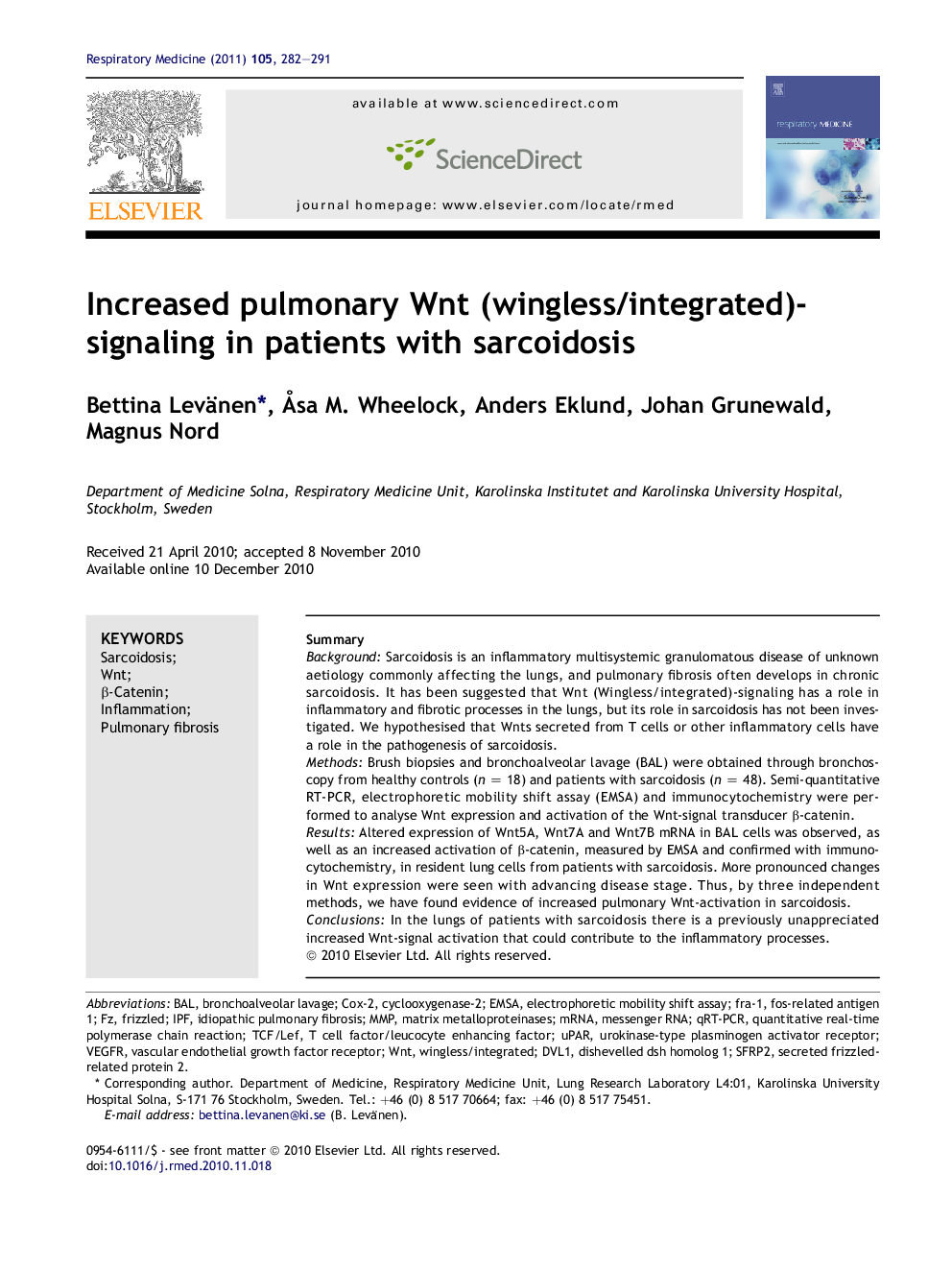| Article ID | Journal | Published Year | Pages | File Type |
|---|---|---|---|---|
| 4211460 | Respiratory Medicine | 2011 | 10 Pages |
SummaryBackgroundSarcoidosis is an inflammatory multisystemic granulomatous disease of unknown aetiology commonly affecting the lungs, and pulmonary fibrosis often develops in chronic sarcoidosis. It has been suggested that Wnt (Wingless/integrated)-signaling has a role in inflammatory and fibrotic processes in the lungs, but its role in sarcoidosis has not been investigated. We hypothesised that Wnts secreted from T cells or other inflammatory cells have a role in the pathogenesis of sarcoidosis.MethodsBrush biopsies and bronchoalveolar lavage (BAL) were obtained through bronchoscopy from healthy controls (n = 18) and patients with sarcoidosis (n = 48). Semi-quantitative RT-PCR, electrophoretic mobility shift assay (EMSA) and immunocytochemistry were performed to analyse Wnt expression and activation of the Wnt-signal transducer β-catenin.ResultsAltered expression of Wnt5A, Wnt7A and Wnt7B mRNA in BAL cells was observed, as well as an increased activation of β-catenin, measured by EMSA and confirmed with immunocytochemistry, in resident lung cells from patients with sarcoidosis. More pronounced changes in Wnt expression were seen with advancing disease stage. Thus, by three independent methods, we have found evidence of increased pulmonary Wnt-activation in sarcoidosis.ConclusionsIn the lungs of patients with sarcoidosis there is a previously unappreciated increased Wnt-signal activation that could contribute to the inflammatory processes.
